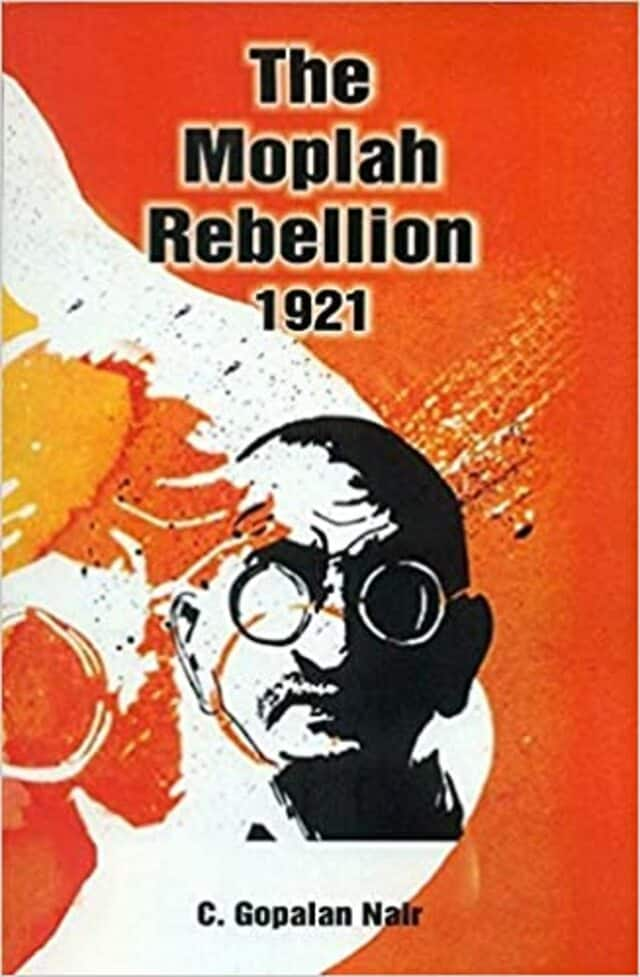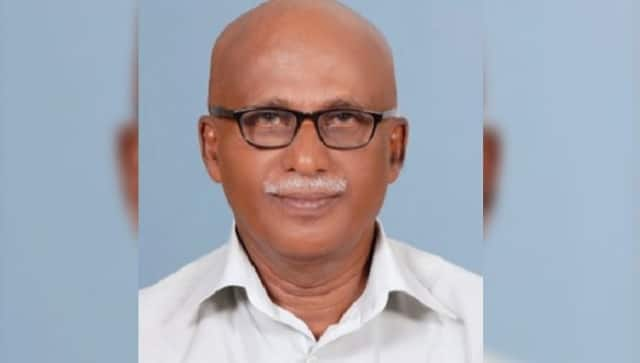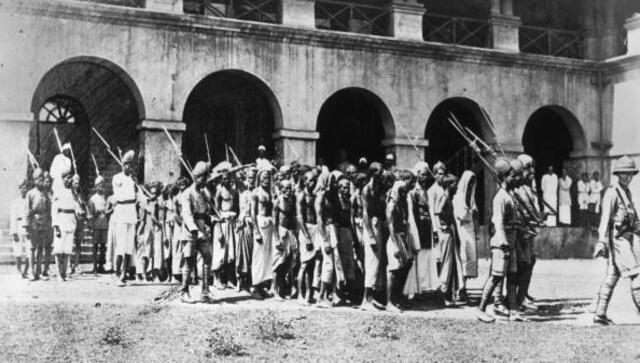Last year, a three-member ICHR (Indian Council of Historical Research) panel, led by Prof CI Issac, recommended removing the names of 387 Moplah rebels, including Variyan Kunnathu Kunjahammed Haji and Ali Musliyar, from the list of freedom fighters. According to the panel, the 1921 Moplah rebellion was never a part of the Independence struggle but a fundamentalist movement aimed at setting up an Islamist caliphate. The rebellion saw the massacre of thousands of Hindus, who refused to be converted. In an exclusive conversation with Firstpost, Prof Issac not just called, quite categorically, the Moplah rebellion “a jihad against Hindus”, but also insisted that its crushing by the Gorkha regiment of the British army ensured that India didn’t lose this part of India forever — just like Pakistan and Bangladesh. Excerpts: I will start the interview with the most fundamental question: Were the people behind the Moplah rebellion Islamist fanatics or freedom fighters? They were not freedom fighters. They never took on the British, hardly attacked the colonial police. The Malabar region had so many plantations, so many British people lived there. But none of them were killed by them. Only two persons — one policeman and another revenue officer — were targeted. Neither was the rebellion exclusively targeted against the landlord class. In 1852, TL Strange, Special Commissioner, enquiring into another outbreak of anti-Hindu violence by the Moplahs, said that “in no instance, any outbreak or threat of outbreak has been attributed to the oppression of tenants by the landlords”. In fact, at one place he described the dealings of Hindu landlords with their tenants — Hindus and Muslims — “mild, equitable and forbearing”. In 1923, C Gopalan Nair, then retired Deputy Collector from Calicut, wrote in his book, The Moplah Rebellion 1921, how the massacre had nothing to do with agrarian disquiet or even against the British colonial government. It was purely a jihad against Hindus. [caption id=“attachment_10544471” align=“alignnone” width=“640”]  Image courtesy: Amazon[/caption] So, Hindus were the victims of the Moplah massacre… Yes, Hindus were the real target, but even among them, it was the poorest of Hindus, both socially and economically, who met the worst fate. Rich Hindus escaped their persecution. EMS Namboodiripad recalled in his memoirs how he and his family had to move 60 km to escape the Moplah fury. The Nambboodiripads, the Nairs, the Menons, etc, who were mostly rich and influential, escaped. But the economically and socially backward people who were the SCs and STs were not that lucky. They had no socio-economic wherewithal to migrate to other places. It is these people who faced the Moplah persecution. Sardar KM Panikkar writes in his book, Hindu Society at Crossroads, that these socially and economically backward people are the real custodians of Hindu faith. It is these people who became the main target of Muslim fundamentalism in the Malabar. Can you give us the details of the persecution Hindus were subjected to in the Malabar region? All these narratives of Moplah rebels being anti-British and anti-landlords are pure nonsense. It was a planned rebellion for the establishment of Caliphate and in that endeavour Hindus of the Malabar region were mercilessly killed or converted. As Nair wrote matter of factly: “The Hindu believed in Hindu-Moslem unity and never dreamed of a day when the Moslem would turn against him: The Moplahs had no such delusion.” There are documentary evidences suggesting that wells were filled with the “mutilated, but often only half-dead bodies of those who refused to abandon Hindu faith; of pregnant women cut to pieces and left on the roadside and jungles with the unborn babies protruding from the mangled corpses”. [caption id=“attachment_9990211” align=“alignnone” width=“640”]  File image of Mappila (Moplah rebels) captured after a battle with British colonial troops, during 1921-22 Mappila Uprising. Wikimedia Commons[/caption] In one instance, when some of these Hindus converted to Islam, they were circumcised and given non-vegetarian food. Not used to eating non-vegetarian food, they vomited. The Muslim fundamentalists beat them up badly. One can understand the intensity of their abhorrence for “others” from this episode. These acts of bigotry have mostly gone unrecorded. Last year, the committee under you had suggested the removal of the names of 387 Moplah rioters from the list of freedom fighters. What were the reasons behind this recommendation? We recommended the deletion of their names as we felt that the 1921 rebellion was not a part of the Independence struggle but an Islamist movement for the setting of a Caliphate. Had it succeeded, a Caliphate would have been established in the region and India would have lost that part from its territory forever. Unlike the lies being peddled by our communist historians, Variyan Kunnathu Kunjahammed Haji and Ali Musliyar led the murderous mob of Moplah rioters and executed a large number of Hindus. They did not even spare liberal Muslims. A large number of these so-called “martyrs” were under-trial prisoners, who died in jail due to diseases such as cholera and natural causes; hence, they cannot be treated as martyrs. Only a handful of them were executed by the government after a court trial. They were the martyrs of their religion, and not the country. If I fight for Christendom, how can I become a freedom fighter? Did you expect the storm this suggestion had created? When I submitted the report seeking the removal of these 387 Moplahs, it created a huge controversy. I received several threatening calls over the issue. I told them that I was a 70-year-old man who had lived his life well, so these threats meant little to me. I told them that I would fight till my last breath to ensure that the names of these 387 people are removed from the list. And I am hopeful that the Modi government will remove these names soon. Here, I must say that Moplahs were not seen as freedom fighters till the 1970s. Uma Shankar Dikshit, who was the home minister during the Indira Gandhi dispensation in the early 1970s, had categorically said that the Moplahs weren’t freedom fighters. Later, Mrs Gandhi, under the influence of her Leftist friends, made them freedom fighters. They can be termed ‘freedom fighters’ only if the term is equated with the killings of Hindus. How did the poison of communalism vitiate the Malabar coast which resulted in the Moplah killings? From 1836 to 1921, there were, in total, 43 Moplah riots in the region. This started from the days of Hyder Ali and Tipu Sultan. It was Tipu Sultan who injected the venom of communalism in the Malabar region, which in the past had harmonious relations between the two communities. In fact, the Zamorins (called Sāmūtiri in Malayalam), who ruled the Malabar region, made a rule that the eldest son of a Hindu residing in the coastal areas would be brought up as a Muslim. The arrival of Hyder Ali and Tipu Sultan changed this dynamic and the seeds of separatism were sowed deep into the Muslim psyche. Just before the interview you were saying that the Gorkhas had saved the Hindus of the Malabar coast. Can you please explain? Yes, the fate of Hindus in the Malabar region would have been sealed had the Gorkha regiment of the British army not arrived on time. The Gorkhas decisively defeated the Moplahs in the battle that began on 26 August 1921. Had they not reached on time, it would have been all over for Hindus of the region. Had our Gorkha brothers not come on time, there would have been three regions that would have been carved out of India — Pakistan, Bangladesh and Kerala. Yes, the Muslim fanatics committed the killings in Moplah, but the role of Mahatma Gandhi was equally dubious. What’s your take? We have to understand that Gandhi’s Muslim policy evolved from his experiences in South Africa, where his patrons were rich Muslims. He based his assessment from his dealings with those Muslims. There is no denying the fact that the Mahatma’s intentions were noble and that he wished good for both Hindus and Muslims, but his Muslim policy, particularly those associated with the Khilafat movement, was short-sighted and counterproductive. Post-Independence, this approach of pandering to the Muslim community was given an institutional covering which, when mixed with vote-bank politics, attempted to uproot India’s dharmic liberal traditions in the name of secularism. Your critics try questioning your academic credentials by saying you are an RSS man. How do you counter that? [caption id=“attachment_10544511” align=“alignnone” width=“640”]  Prof CI Issac. Image Courtesy: Twitter/@prof_issac[/caption] I don’t care what these vested elements say. My conscience is clear. I am a practising Christian who hasn’t disowned his innate Hindu-ness. My name is Isaac, and I was born to a Christian parents. But culturally, I am a Hindu. We should not mix culture and religion. I believe in the Sanatana tradition of “Ekam Sat Vipra Bahudha Vadanti”, which means: There is one God, but he is worshipped in different names. I have two names — a Christian name and a family name; my family name is Raju. My mother always refers to me as Raju, which is a Hindu name. We need to understand that there is no contradiction in being a Christian religion-wise and a Hindu culturally. Read all the Latest News , Trending News , Cricket News , Bollywood News , India News and Entertainment News here. Follow us on Facebook, Twitter and Instagram.
ICHR member CI Issac says that the Moplah rebellion was never a part of the Independence struggle, but a fundamentalist movement aimed at setting up an Islamist caliphate
Advertisement
End of Article
Written by Utpal Kumar
The author is Opinion Editor, Firstpost and News18 see more


)

)
)
)
)
)
)
)
)



